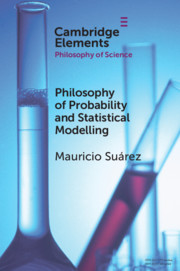Refine search
Actions for selected content:
1 results

Philosophy of Probability and Statistical Modelling
-
- Published online:
- 10 December 2020
- Print publication:
- 21 January 2021
-
- Element
- Export citation
